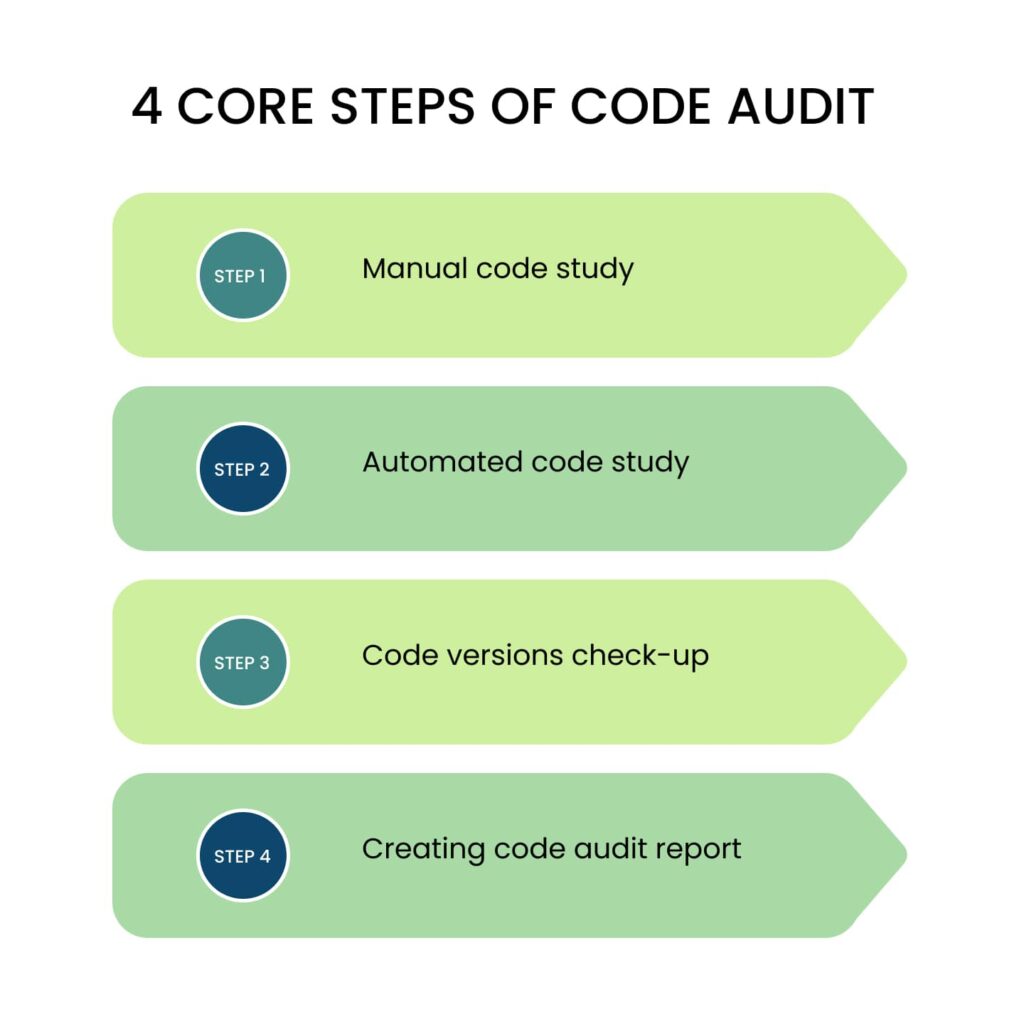The Role of Knowledge Bases in Enhancing Code Audits for Security
November 30, 2024


In today’s software-driven world, security is a top priority for businesses and engineers alike. Ensuring application security requires rigorous techniques such as code audits to find and remediate vulnerabilities. While the audit process is highly technical, incorporating a well-structured knowledge base plays a crucial role in improving efficiency, accuracy, and long-term impact. The role of knowledge bases is to provide critical information, historical insights, and best practices, which enhance the audit process. Software code audit services play a key role here, offering specialized expertise to improve the quality and depth of audits, ensuring comprehensive vulnerability identification.
A knowledge base functions as a consolidated repository of information, giving development teams, auditors, and stakeholders easy access to critical resources. These include documentation, previous audit findings, coding standards, and repair instructions. Furthermore, by streamlining the flow of information and reducing redundancy, a knowledge base transforms how organizations approach code security, ultimately offering more comprehensive and proactive solutions to vulnerabilities.

Key Features of a Knowledge Base for Effective Code Audits
To empower teams conducting code audits, a robust knowledge base must include several critical features that address specific security challenges and enable efficient processes.
1. Centralized Documentation
A good knowledge base condenses critical materials like coding standards, security rules, and best practices into a single, easily accessible site. This guarantees consistency across teams and projects, particularly during manual code reviews, where adhering to updated security protocols is critical.
2. Audit Findings Repository
Keeping a complete record of previous audit reports provides essential insights into reoccurring vulnerabilities, common errors, and lessons gained. This historical background enables teams to better evaluate potential risks, prioritize high-impact areas, and iteratively enhance their approach.
3. Collaboration Tools

Modern software development relies heavily on collaboration. Features like shared notes, issue flagging, and real-time feedback foster communication between developers, auditors, and security experts. This collaborative environment minimizes delays, enhances accountability, and promotes a proactive security culture.
4. Automated Updates
Keeping up with security and compliance standards is critical, as they are always evolving. A high-quality knowledge base should include automated updates for regulatory needs like GDPR, HIPAA, and PCI-DSS. This ensures that your audits always comply with the most recent standards and best practices.
5. Advanced Search Functionality
A robust search tool is essential for navigating a large repository of information. It enables users to quickly find specific resources, such as previous findings on SQL injection vulnerabilities or remediation steps for insecure APIs. This feature reduces the time spent searching for relevant data, making audits more efficient and thorough.
6. Training and Educational Resources
Interactive guides, tutorials, and FAQs embedded in the knowledge base provide ongoing learning opportunities for team members. Moreover, these resources help developers and auditors stay informed about secure coding practices, emerging vulnerabilities, and effective audit methodologies.
FURTHER READING: |
1. The 7 Reasons Why Use Drupal for Your Business |
2. 6 WordPress Security Issues: Cybersecurity Risks of Managing |
3. Headless CMS: the Next Frontier of Content Management |
Enhancing Code Audits with a Knowledge Base
Integrating a well-structured knowledge base into the code audit process yields various real benefits, highlighting the critical role of knowledge bases in transforming a normally reactive effort into a proactive strategy.

Improved Vulnerability Detection
Access to detailed past audit records and standardized guidelines helps auditors identify patterns in vulnerabilities, such as recurring instances of cross-site scripting (XSS) or improper API configurations. This insight enhances the precision and scope of vulnerability detection.
Streamlined Remediation Efforts
A centralized repository of remediation strategies and examples allows developers to resolve vulnerabilities faster. Clear, actionable steps outlined in the knowledge base reduce the likelihood of miscommunication or implementation delays.
Proactive Security Practices

By embedding best practices, training modules, and updated protocols into daily workflows, a knowledge base enables teams to adopt a proactive stance on security. As a result, this reduces reliance on reactive measures like frequent audits, ultimately saving time and resources.
Support for Scalability
The challenges of maintaining security rise in tandem with the complexity of software systems. A scalable knowledge base facilitates this growth by guaranteeing consistent adherence to standards and practices, even when teams grow or change.So do the difficulties of maintaining security. A scalable knowledge base facilitates this growth by guaranteeing consistent adherence to standards and practices, even when teams grow or change.
Toplist Knowledge Base: A Powerful Tool for Code Audits

A leading example of an effective knowledge base is the Toplist Knowledge Base, designed to address the dynamic needs of software teams conducting code audits. It offers:
- Customizable Modules: Tailor the knowledge base to your industry-specific or project-specific requirements, ensuring a perfect fit for your workflows.
- Seamless Integration: Integrate the knowledge base with tools used in the software development lifecycle, from version control to project management systems.
- Automated Compliance Updates: Stay ahead of regulatory changes with automated updates to security protocols and industry standards.
- Collaboration Features: Enable real-time interaction among team members, fostering faster decision-making and resolution of security concerns.
By leveraging tools like the Toplist Knowledge Base, businesses can significantly enhance the effectiveness of their code audits. This not only strengthens software security but also cultivates a culture of continuous improvement and accountability.
The Broader Benefits of Knowledge Bases in Security

Time and Cost Savings
A knowledge base cuts down on wasted time during audits by avoiding redundancy and ensuring simple access to critical information. Early vulnerability detection reduces the financial and reputational risks associated with data breaches.
Regulatory Compliance Made Easier
Secure coding procedures must be strictly followed by industry standards and regulations such as ISO, GDPR, and HIPAA. Knowledge bases support team compliance by incorporating these standards into daily workflows.
Improved Code Quality
A well-structured knowledge base does more than assist with audits—it elevates overall code quality. By encouraging adherence to best practices and providing educational resources, it helps developers write more secure, maintainable, and reliable code.
Enhanced Trust and Credibility
Secure, well-audited software builds trust among clients and users. Demonstrating a commitment to security through proactive measures like a knowledge base reinforces your organization’s credibility and reliability.
Conclusion
In today’s fast-paced digital environment, where cyber dangers are always emerging, incorporating a knowledge base into your code audit process is no longer an option—it’s required. The role of knowledge bases, such as the Toplist Knowledge Base, is to provide the capabilities and flexibility required to simplify audits, improve team communication, and assure industry compliance.
Organizations that take a proactive approach to security, using a solid knowledge base, may defend their software from vulnerabilities, save money, and develop trust with their users. Invest in knowledge management today to ensure the success and durability of your product.






Read more topics




























































